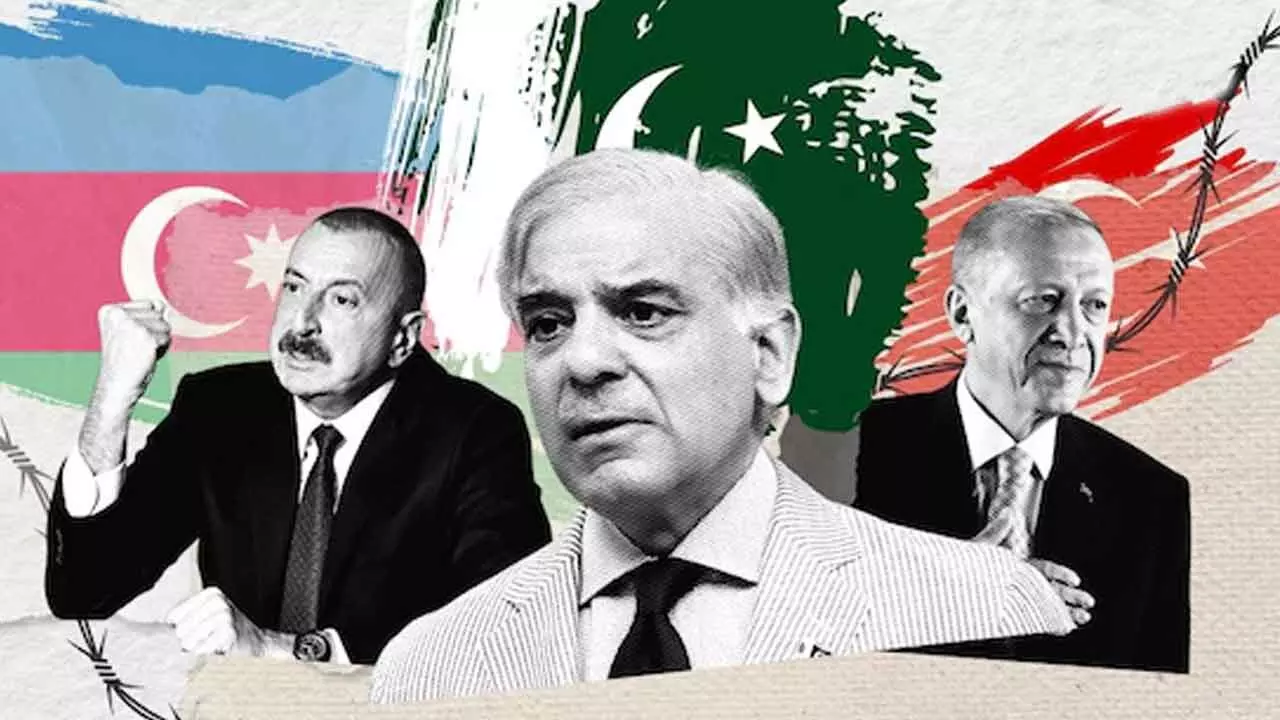Indians Come Together To Punish Pak Friends Turkey And Azerbaijan
Indians Come Together To Punish Pak Friends Turkey And Azerbaijan

India seems to be veering towards a whole-of-nation approach to combat terrorism. This strategy goes beyond traditional state-led measures, bringing together all facets of society—government agencies, businesses, civil society, and the general public—to act in coordination against entities and nations perceived to support terrorism, particularly those aligned with Pakistan. A recent example of this approach is the revocation of security clearance of Turkish company, Celebi Ground Handling India Private Limited, “in the interest of national security.” The decision underscores the government’s intent to sever ties with companies from countries that are hostile to us. This move prompted Delhi international airport to cut its association with Çelebi, which also operates cargo services under the name Celebi Delhi Cargo Terminal Management India. The termination of these contracts sends a clear message: national security takes precedence over commercial interests. The ripple effect of this stance has extended to Turkey, which is facing a significant backlash from Indian authorities and citizens alike for its diplomatic and ideological support to Pakistan on matters concerning terrorism and Kashmir.
The social media in India has been abuzz with calls to ‘Boycott Turkey,’ a campaign that has quickly gathered steam. Indian tourists are cancelling planned trips to Turkey, and online travel agencies have reportedly stopped accepting itineraries that include Turkish destinations. The impact on Turkey could be substantial, considering that tourism contributes nearly 12 per cent to its national income. Indians have also begun cancelling travel plans to Azerbaijan, another country that supported Pakistan, further indicating the extent of the boycott sentiment. Meanwhile, the backlash is not limited to travel and tourism. Trade ties are also being re-evaluated, with various Indian trade associations for a boycott of Turkish goods. Even consumers are increasingly refusing to purchase Turkish products, demonstrating a collective shift in purchasing behaviour based on geopolitical concerns. This trend reflects a growing awareness among Indians of the strategic importance of economic choices and their power to influence international relations. Educational exchanges have also been affected. In a strong symbolic gesture, prominent Indian universities, including JNU in Delhi, have cancelled academic collaborations and exchange programs with Turkish institutions.
This academic disengagement marks a significant shift, highlighting how India's strategic reorientation is permeating not just economic and diplomatic spheres, but also cultural and educational domains. This evolving whole-of-nation approach is not just a reaction to geopolitical developments; it is an emerging national policy orientation. India is increasingly aware of the importance of synchronizing government policy with public sentiment to effectively counter threats to its sovereignty and security. The involvement of private entities, academic institutions, and civil society in shaping foreign policy responses is a significant development in India’s strategic thinking. To ensure that this national awakening does not fade over time, the government and influential public figures must institutionalise this approach. The appropriate steps towards that would be sustained awareness campaigns, policy coherence, and strategic communication. India must integrate this model into its long-term national security strategy, transforming reactive sentiments into proactive national behaviour. The whole-of-nation framework is a bold approach. By harnessing the collective will of its people alongside government action, India is laying the foundation for a more secure, resilient, and assertive national posture on the global stage.

